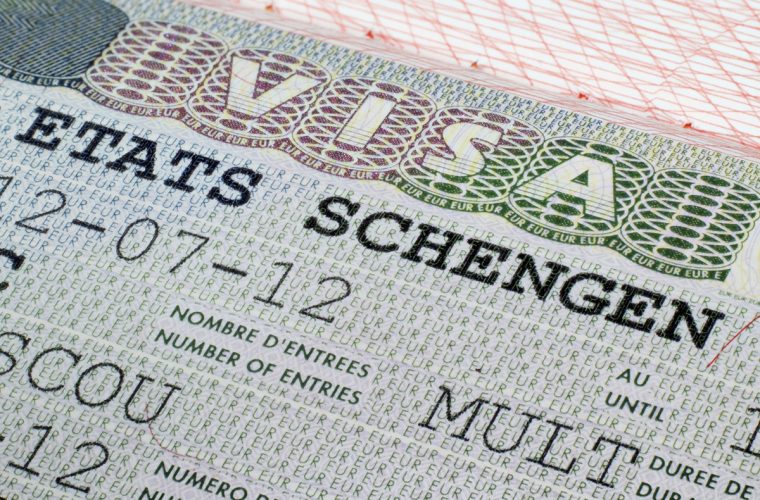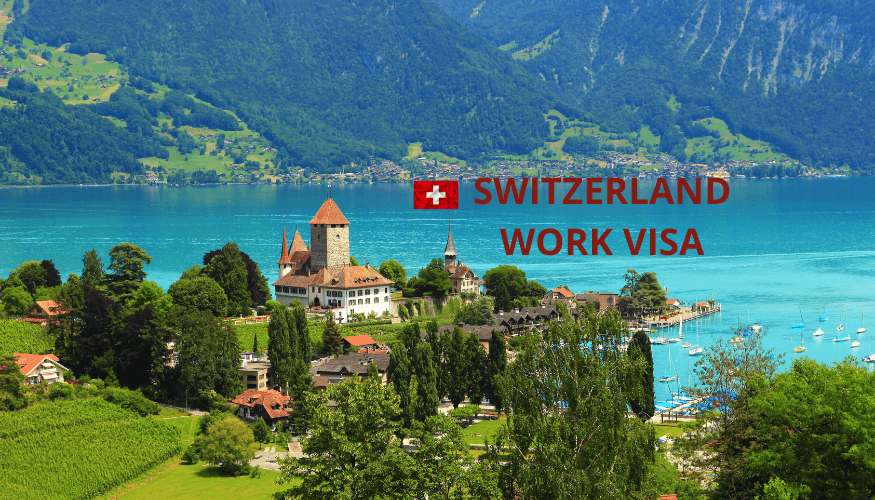A work permit in Switzerland typically costs between CHF 55 and CHF 150. The exact fee depends on the canton and the type of permit required.
Navigating the process of obtaining a work permit in Switzerland can be straightforward with the right information. Switzerland, known for its robust economy and high standard of living, attracts professionals worldwide. Whether you’re an EU/EFTA national or from a third country, the cost of a Swiss work permit varies based on various factors, including your nationality and the category of permit you apply for.
Understanding these costs is crucial as they form part of the essential steps in planning your relocation or employment in Switzerland. The Swiss authorities have streamlined the application process to be efficient, but the associated fees are an important consideration for budgeting your move. Keep in mind that these costs are subject to change, so it’s advisable to check the latest fees from official Swiss sources before applying.

Credit: www.internations.org
Table of Contents
Swiss Work Permit Basics
Understanding the cost of a work permit in Switzerland starts with knowing the basics. Switzerland boasts an open market and a thriving economy. Yet, its work permit system is precise. It ensures that skilled professionals from abroad align with the nation’s labour requirements. A Swiss work permit allows individuals to live and work here. However, the process and costs vary. It depends on many factors such as nationality and job type. Below we’ll navigate through the types of work permits. We will also explain the eligibility criteria for applicants in Switzerland.
Types Of Work Permits
In Switzerland, work permits fall into a few categories:
- Short-term permits (L): For assignments up to one year.
- Resident permits (B): Granted for longer job contracts or self-employment.
- Settlement permits (C): Open-ended and given after continuous residence.
- Frontier worker permits (G): For those living in border zones but working in Switzerland.
- Interim permits (F): For applicants with provisional admittance, like asylum seekers.
The cost for these permits differs. It also depends on the canton of employment and individual circumstances. Some permits might have a set fee. Others need more steps that could increase the cost. Businesses can also cover work permit costs for their employees.
Eligibility Criteria For Applicants
Not everyone can get a Swiss work permit. The country’s rules are strict. Here’s a simplified breakdown of the eligibility criteria:
- Job Offer: You need a valid job contract from a Swiss employer.
- Skills Match: Your qualifications must suit the job you’re applying for.
- Quotas: Some permits have annual quotas. They can impact eligibility.
- Residence Status: Your current status in Switzerland can affect your application.
Swiss authorities might require more from non-EU/EFTA nationals. This includes proving that no Swiss or EU citizen could fill the job. For EU/EFTA citizens, the agreement on free movement simplifies the process. This means easier access to the Swiss labour market. Eligibility also varies across different Swiss cantons. Each has its additional requirements and processes.
Cost Determining Factors
Understanding the various elements influencing the cost of a work permit in Switzerland is crucial. Factors such as permit type and applicant nationality play a significant role in determining the overall fee. Let’s explore these factors.
Permit Type And Duration
The type of permit and its duration are central to the fee structure. Switzerland offers diverse permit types, each with different validity periods:
- Short-term permits (L): For contracts less than a year.
- Resident permits (B): Renewed yearly or provided for five years.
- Permanent residence permits (C): For those who intend to stay indefinitely.
- Cross-border commuter permits (G): For residents of border areas working in Switzerland.
Different permits have various pricing schemes, reflecting their duration and terms. For example:
| Permit Type | Duration | Typical Cost (CHF) |
|---|---|---|
| L Permit | Up to 1 year | 80-100 |
| B Permit | 1 year or 5 years | 140 |
| C Permit | Indefinite | 155 |
| G Permit | Varies | 80-100 |
Applicant’s Nationality
The applicant’s nationality is another important factor for costs. Citizens from the European Union (EU) or European Free Trade Association (EFTA) usually face lower fees:
- EU/EFTA nationals: Benefit from agreements easing movement and work.
- Non-EU/EFTA nationals: Might incur higher costs due to stricter regulations.
Specific costs vary, but as an example:
- EU/EFTA nationals: CHF 55 for an L Permit.
- Non-EU/EFTA nationals: CHF 100 for an L Permit.
The Swiss consulate or migration office in the applicant’s home country can offer the most accurate fee information.
Standard Fees For Work Permits
Understanding the Standard Fees for Work Permits in Switzerland is essential for anyone planning to work in the country. These fees vary depending on the type of permit and the duration of stay. They are a crucial part of budgeting for your new job in Switzerland.
Short-term L Permit Fees
The Short-Term L Permit applies to stays of up to one year. The fee structure for this permit is straightforward:
- Adults: 100 CHF
- Children under 18: 50 CHF
This permit is often sought after for short-term employment or project work.
B And C Permit Fees
The B Permit is for residence while the C Permit is a settlement permit. Both come with their own set of costs:
| Type of Permit | Initial Issue | Renewal |
|---|---|---|
| B Permit | 100 CHF | 80 CHF |
| C Permit | 100 CHF | 80 CHF |
Fees for these permits ensure your legal status while working and living in Switzerland.
Additional Costs And Considerations
When planning to work in Switzerland, it’s crucial to look beyond the base fee for a work permit. Various other expenses can add up. Understanding these costs ensures you’re financially prepared for the move. Let’s explore some key additional costs tied to obtaining a Swiss work permit.
Processing Expenses
The cost to apply for a work permit in Switzerland doesn’t end with the application fee. Each canton may have different processing expenses. Expect charges for notarization and document translation. Residents often need to budget for these:
- Notarization of documents: Certifying your paperwork’s authenticity might be required.
- Translation services: If your documents aren’t in the local language, professional translation is a must.
- Courier fees: Securely sending documents may incur courier costs.
Mandatory Health Insurance
Health insurance is a legal requirement in Switzerland. You must prove you’re insured within three months of arrival. Consider these points:
- Basic coverage: All residents must have, at minimum, this level of insurance.
- Monthly premiums: Rates vary based on the canton, provider, and chosen deductible.
Tip: Compare insurance providers to find an affordable plan.
Integration Agreement Fees
Some cantons ask for an integration agreement. This can lead to extra costs. Be prepared for:
- Language courses: Learning the local language may be compulsory.
- Civic orientation programs: These courses teach you about Swiss life.
These fees vary by canton but are essential for long-term residency
Comparing Costs Across Cantons
Comparing costs across different cantons in Switzerland reveals interesting insights into work permit expenses. Switzerland is a federation of cantons, each with its own rules and fees. This section delves into the cost variations and provides examples of how much one might expect to pay for a work permit depending on the region.
Cantonal Fee Variations
The cost of obtaining a work permit in Switzerland depends significantly on the canton of employment. Each of the 26 cantons has the authority to set its own pricing structure, leading to a diverse range of fees.
Typically, fees can range from CHF 58 to several hundred Swiss Francs, influenced by factors such as the type of permit, the applicant’s nationality, and the canton’s specific administrative costs.
Examples Of Regional Differences
To better understand how work permit costs vary across Switzerland, let’s look at some regional examples:
- Zurich – Here, fees may reach upwards of CHF 150 for a short-term permit.
- Geneva – A candidate might pay around CHF 100 for similar permission.
- Vaud – Costs for permits in this canton can differ, with some even surpassing the Geneva fee.
| Canton | Cost (Short-term permit) | Cost (Long-term permit) |
|---|---|---|
| Zurich | Approx. CHF 150 | Varies |
| Geneva | Approx. CHF 100 | Varies |
| Vaud | Approx. CHF 100-200 | Varies |
Note that the permits for third-country nationals generally come with higher fees due to additional processing requirements.
In conclusion, the cost of a work permit in Switzerland varies widely. Prospective workers should check the specific cantonal websites or contact local authorities to get the most accurate estimate for their situation.

Credit: studyinginswitzerland.com
Saving On Work Permit Costs
Securing a work permit in Switzerland is a necessary step for any expat. But don’t let costs hold you back. You can save by understanding available supports. Focus on two specific areas: government subsidies and employer-sponsored permits. Taking advantage of these can ease the financial burden significantly.
Government Subsidies And Support
Switzerland may offer programs to reduce work permit costs. These are for specific groups or sectors. Check eligibility criteria for potential savings. The Swiss government provides information through cantonal migration offices. Explore these options for possible discounts or waivers on fees. Remember, subsidies can change annually. Keep up-to-date for the best chance to save.
Employer-sponsored Permits
Employers sometimes cover work permit costs for their employees. This is common in sectors with high demand for skilled workers. Speak with HR about this possibility. They can provide details on company policies. Some companies may pay the full fee or offer a reimbursement scheme. This support can substantially reduce your expenses. Make sure to get all agreements in writing for your records.
| Type of Support | Description | Potential Savings |
|---|---|---|
| Government Subsidies | Sector-specific or group-specific fee reductions | Varies by program and eligibility |
| Employer Assistance | Coverage or reimbursement of permit costs | Can cover partial to full permit fee |

Credit: m.youtube.com
Frequently Asked Questions For How Much Does A Work Permit Cost In Switzerland?
What Is The Cost Of A Swiss Work Permit?
The cost of a Swiss work permit varies depending on permit type and canton but generally ranges from CHF 55 to CHF 150. It’s advisable to consult the canton’s migration office for precise fees.
Can Eu Nationals Obtain Swiss Work Permits?
EU nationals benefit from bilateral agreements with Switzerland, simplifying the work permit process. They must register upon employment start and permit cost is similar to local rates.
What Are The Types Of Swiss Work Permits?
Switzerland offers several work permits, including short-term L permits, residence B permits, and permanent C permits. Each has different criteria, durations, and fees.
How Long To Process A Work Permit In Switzerland?
Processing times for Swiss work permits can vary, typically taking anywhere from a few weeks up to three months depending on the permit type and canton.
Conclusion
Understanding the costs associated with obtaining a work permit in Switzerland is crucial. Fees vary based on permit type and individual circumstances. Budgeting for this expense is key to a smooth relocation process. Explore our guide to navigate these financial aspects with ease, ensuring a successful transition to working in Switzerland.

